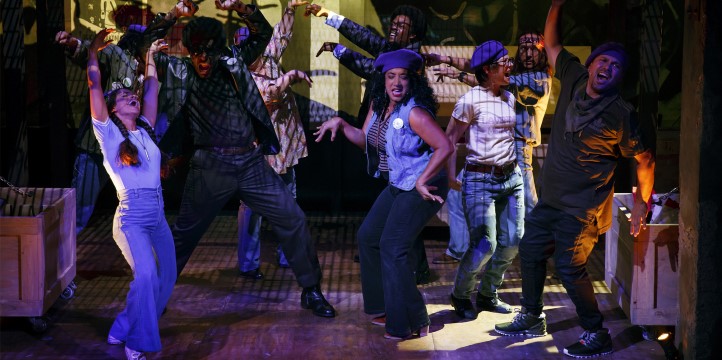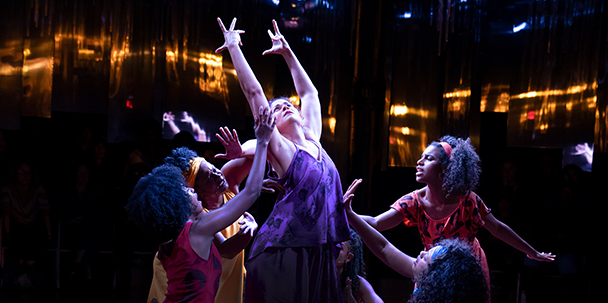For our first week we challenge you to interpret and share:
Shakespeare’s Sonnet 29
This week’s theme: ALONE TOGETHER
We’ve invited actors Phylicia Rashad and Raúl Esparza, as well as singer/musician Steve Earle, to share their interpretations of this famous sonnet, in English and Spanish.
JOIN THE BRAVE NEW SHAKESPEARE CHALLENGE
WATCH: Check out the videos from our Public Theater family for inspiration on this page.
CREATE: Get inspired! Act, sing, rewrite, translate, paint, dance – whatever moves you!
CAPTURE: Record a video or snap a photo of your work.
SHARE: Post your interpretation and share it with us and challenge your friends! Tag @PublicTheaterNY on Twitter and Instagram or @publictheater on Facebook, and be sure to use the hashtag #BraveNewShakespeare.
BONUS POINTS: Tag a friend who you think is up for the challenge.
SONNET 29
By William Shakespeare
When, in disgrace with fortune and men’s eyes,
I all alone beweep my outcast state,
And trouble deaf heaven with my bootless cries,
And look upon myself and curse my fate,
Wishing me like to one more rich in hope,
Featured like him, like him with friends possessed,
Desiring this man’s art and that man’s scope,
With what I most enjoy contented least;
Yet in these thoughts myself almost despising,
Haply I think on thee, and then my state,
(Like to the lark at break of day arising
From sullen earth) sings hymns at heaven’s gate;
For thy sweet love remembered such wealth brings
That then I scorn to change my state with kings.
Soneto 29
Por William Shakespeare
Traducido por William Ospina
Cuando, infeliz, postrado por el hombre y la suerte,
En mi triste destierro lloro a solas conmigo;
Y agita al sordo cielo mi grito vano y fuerte,
Y, volviendo a mirarme, mi destino maldigo,
Y sueño ser como otro más rico en esperanza,
Tener su mismo aspecto, gozar sus compañías,
Y envidio el arte de éste, del otro la pujanza,
Hastiado aun de aquello que me daba alegrías
Si en estos pensamientos mi desprecio me espanta,
Pienso en ti felizmente, y entonces mi consuelo,
Como una alondra a orillas del día se levanta
Del mundo oscuro, y canta a las puertas del cielo.
Tal riqueza me ofreces, dulce amor recordado,
Que desdeño cambiar con los reyes mi estado.
Stay safe, and we look forward to sharing your own version!













